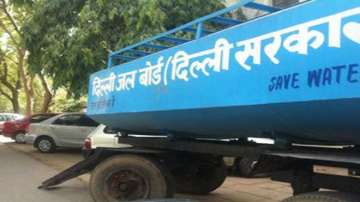Water Minister Satyendar Jain on Wednesday said that the Delhi Jal Board (DJB) would be upgrading all of its 20 biogas plants and sewage treatment plants (STP) in a span of 15 months.
In a review meeting on wastewater treatment, the DJB also fixed the tariffs for supplying farmhouses and institutional facilities with treated water for irrigational purposes.
Jain has instructed the officials to upgrade the STPs within a time span of 12-15 months using the latest state-of-the-art technology, unlike the conventional technology which takes 4-5 years to complete the process.
"With the new method of upgradation, the existing plants will be revived according to the latest standards without additional civil work or tree cutting and with minimal effect to the neighbourhood," he said while adding that the step will be a revolutionary one.
Jain also asked the DJB to try to achieve the completion of all these works at least six months before actual deadlines set for "Clean Yamuna''. It is to be noted that biogas plant is a system that biologically digests organic material and converts organic material into methane gas which can be further converted to CNG or electricity.The Minister instructed the officials to upgrade its 20 biogas plants to handle sludge from STP, septage from septic tank, cow dung from dairies and Municipal Solid Waste, especially from mandis and nearby societies/colonies.
This decision has been taken in order to clean the environment and produce biogas as much as possible so that it can be used to make clean fuels like bio-CNG and produce electricity.DJB currently has Biogas plants capacity to handle around 400 tonnes per day, out of which only 240 MGD are functional. Jain has instructed the officials to make the complete capacity functional within one year.
''This step will help to treat all the waste and pollutants and will help in cleaning City drains, rivers and reduce the burden on landfill sites. Additional gas and power generated from the Biogas plants will be supplied to Electric vehicle stations and CNG stations to promote clean transport fuel. This will also reduce the burden on the existing network for the supply of electricity and gas,'' he said.
In the meeting, he further instructed the officials to expedite the laying of pipelines to carry STP-treated water to the end-user. The decision was taken to supply treated water to farmhouses in the areas like Satbari, Sultanpur and Jaunpur, etc which are currently extracting groundwater for horticultural needs.
It is expected that more than 15 MGD of water would be supplied to farmhouses so that tubewells could be closed and precious groundwater could be saved from further extraction.
The Delhi Jal Board has decided to adopt a fixed tariff model for the supply of treated water. Rs 5000 per acre per month would be charged from the consumer apart from a one-time infrastructure cost of Rs 10,000 per acre.
(With ANI inputs)
Latest India News
